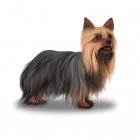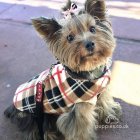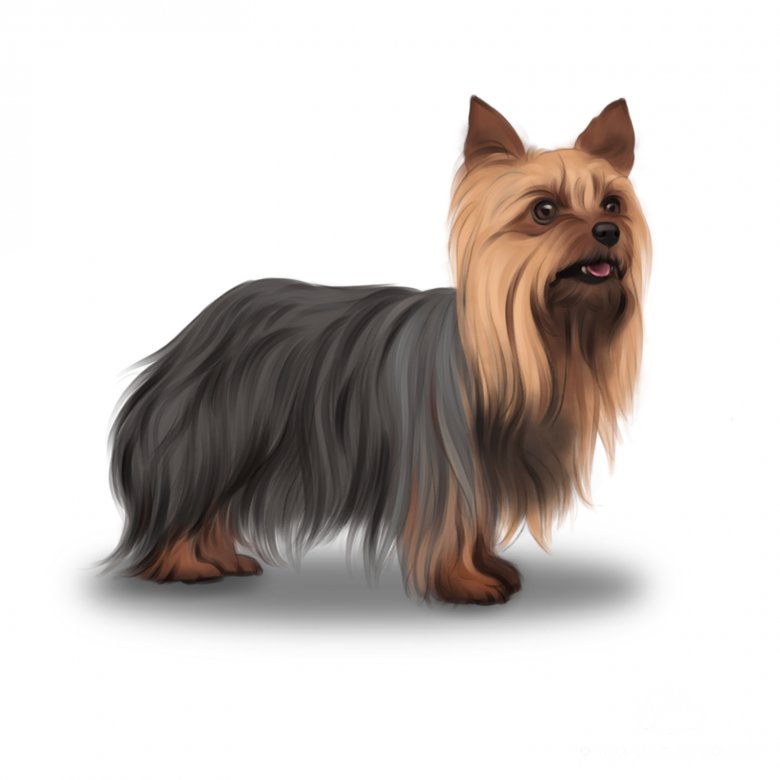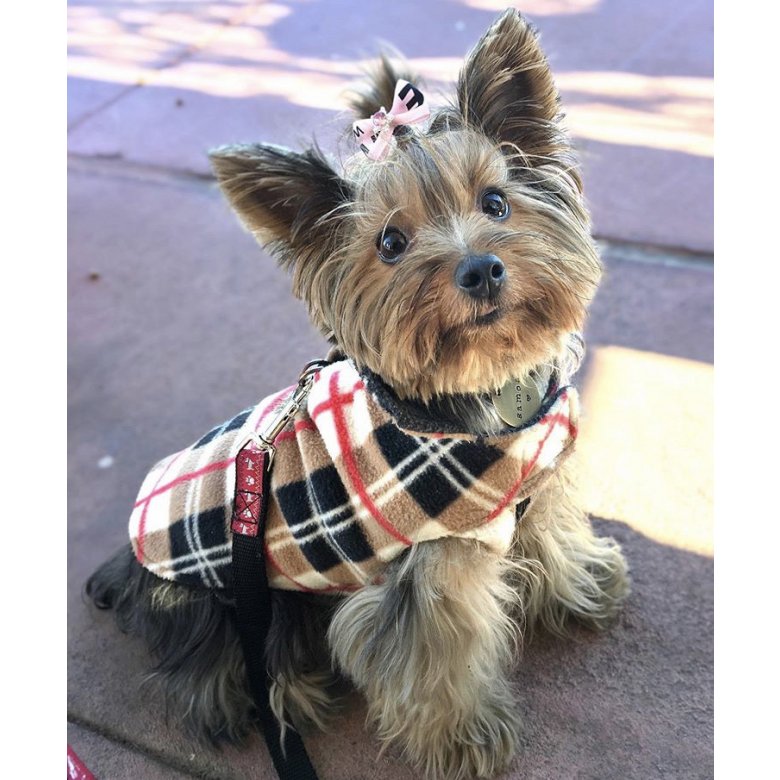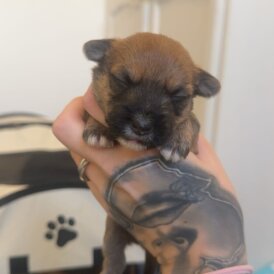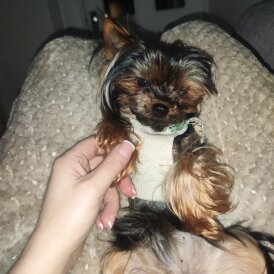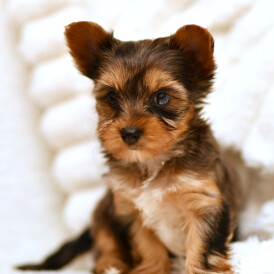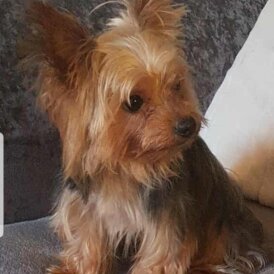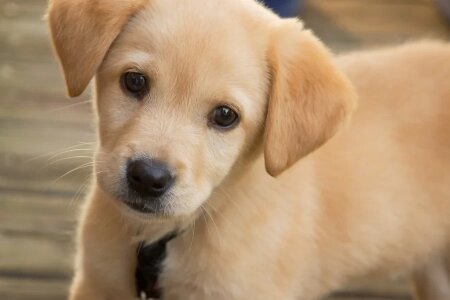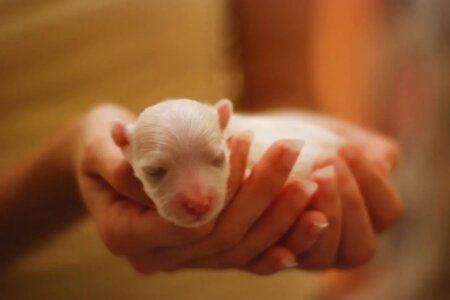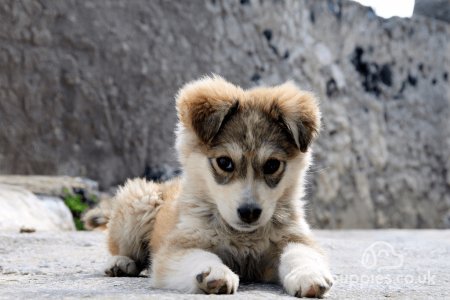Why Yorkshire Terriers are great
Yorkshire Terriers, popularly known as ‘Yorkies’, are an extremely popular breed in the UK and elsewhere. Yorkshire Terriers make fantastic companions; they are highly adaptable and have a wonderful, outgoing nature. Yorkshire Terriers are a brilliant choice for first-time dog owners, as they are intelligent and easy to train. Yorkshire Terriers are very small and compact in stature, so they don’t require a huge amount of space or exercise, making them a popular choice for many people. Yorkshire Terriers may be small in stature, but bring with them a big personality and a courageous heart, winning them the love of many homes. Yorkshire Terriers originate in Yorkshire, where they were introduced in the mid-19th century. Yorkshire Terriers were originally used to control vermin, and this should be considered when around other animals. The Yorkshire Terrier makes a loving and affectionate family pet, and will also make a great watchdog, as they are territorial in nature. Some highlights:
Yorkshire Terriers are confident and boast a larger than life personality
Yorkshire Terriers are clever and easy to train
Yorkshire Terriers are loyal and affectionate companions
Yorkshire Terriers are low maintenance when it comes to exercise and walks
Things to consider when looking at Yorkshire Terriers for Sale
Some downsides to the Yorkshire Terrier:
Yorkshire Terriers are sometimes known to bark a lot
Yorkshire Terriers are territorial and can be very protective
Yorkshire Terriers are known to be often difficult to housebreak
History of Yorkshire Terriers
The Yorkshire Terrier is a native breed to the UK, specifically Yorkshire. Yorkshire Terriers are thought to have been crossed between Scottish Weavers and Halifax Terriers, which were introduced to Yorkshire and Lancashire in the 1850s. Although their origins are not clear, it is speculated that Yorkshire Terriers are relatives of the Manchester Terrier, Paisley Terrier, Skye Terrier and the Dandie Dinmont. Yorkshire Terriers were originally bred to be ratters, which they gained a reputation of being extremely good at.
Appearance
How big is the Yorkshire Terrier?
The Yorkshire Terrier is small in stature, usually reaching a height of 20cm
How heavy is a Yorkshire Terrier?
Yorkshire Terriers generally weigh about 3.2kg
What Colour is the Yorkshire Terrier?
Yorkshire Terriers boast long and straight hair, usually a combination of tan, black and steel grey in colour.
Temperament
Do Yorkshire Terriers make good guard dogs?
Yorkshire Terriers make very effective watchdogs; they are fast to notify their owners when there are strangers around or spot something they don’t like. Yorkshire Terriers are territorial dogs and have a larger than life, feisty personality with a great deal of courage, considering their size.
Do Yorkshire Terriers bark a lot?
Yorkshire Terriers are known to enjoy the sound of their own voice and may be vocal about expressing themselves. However, with the right training and upbringing, Yorkshire Terriers will generally be quiet when told to be.
Are Yorkshire Terriers easy to train?
Yorkshire Terriers are clever little dogs and are easy to train, making them a great choice for first-time owners.
Are Yorkshire Terriers playful?
Yorkshire Terriers have a tremendous personality and love to play, they enjoy getting involved with any activities and fun going on and adore human interaction.
Are Yorkshire Terriers good with children?
Yorkshire Terriers are affectionate dogs, although they are not particularly known for being good around very young children. Yorkshire Terriers would be best suited to a home with older children that can play responsibly with them.
Are Yorkshire Terriers good with other pets?
Yorkshire Terriers are generally good with other dogs, however, care should be taken with big dogs because of the Yorkshire Terrier’s small build. Equally, because of their prey drive and history of vermin control, care should be taken with other small pets such as rabbits. If socialised at an early age, Yorkshire Terriers will have no problem living with other dogs or even cats if they have been introduced to each other early on.
Can I leave a Yorkshire Terrier Alone?
Yorkshire Terriers enjoy human companionship and may become stressed when left alone for too long, although they will be fine to be left to their own devices for a short period of time.
Do Yorkshire Terriers like water?
Yorkshire Terriers are a member of the ‘Toy’ breed category, and being such small dogs they are not generally too fond of water and swimming. Care should always be taken when near deep or dangerous water.
Health
How long do Yorkshire Terriers live?
Yorkshire Terriers have an average life expectancy of between 13 – 16 years.
How much exercise does a Yorkshire Terrier need?
Yorkshire Terriers are low maintenance when it comes to exercise and walks, due to their size. However, Yorkshire Terriers love to fetch and play as much as many other dogs and require around 30 – 40 minutes of exercise a day.
What are Yorkshire Terriers Common health issues?
Like many other breeds, Yorkshire Terriers are associated with a few hereditary health issues. These include Hypoglycemia, Legg-Perthes Disease, Luxating Patellas and dental problems. Many of their hereditary issues can be screened and tested, which is advised when buying a Yorkshire Terrier puppy.
Care
How much space do I need for a Yorkshire Terrier?
Yorkshire Terriers are highly adaptable and don’t require much space, making them ideal for apartment living.
What should I feed my Yorkshire Terrier?
A reputable breeder will provide a feeding schedule that should be adhered to. Yorkshire Terriers can be fussy eaters but should have a healthy appetite when fed on good quality dog food. As a guide, a mature Yorkshire Terrier that weighs around 3kg may be fed 63g to 72g a day.
How much grooming do Yorkshire Terriers need?
Yorkshire Terriers do require regular grooming to keep their long silky coat healthy and tidy. They would benefit from a few trips to the groomers each year to keep on top of things.
Do Yorkshire Terriers shed?
Yorkshire Terriers have long and silky coats which grow continuously throughout the year, unlike some other breeds. They have fine hair rather than fur and they do not shed the same way as other dogs, their coats should be brushed daily to prevent tangles.
Average costs
How much does it cost to keep a Yorkshire Terrier?
As a rough guide in pricing: Cost to buy: roughly £450 to £800 for a well-bred Yorkshire Terrier puppy Other costs (Vet, Food etc): £50 to £80 per month
Specific Buying Guide
You can read our general buying guide here (/advice-on-buying-a-puppy/), with the most important thing being going to view your Yorkshire Terrier Puppy, seeing it with its mother, and checking the quality of the breeder. More specifically, here is some Yorkshire Terrier puppy buying advice:
When looking for a Yorkshire Terrier puppy, as with any other puppy, it is important to look out for scams and ensure that you buy from a reputable breeder. Any medical or breeding documents should be available upon request, and you should be able to see the dam with the puppy.
Other reading, Adopting Yorkshire Terrier Puppies and Rescue Organisations
A big thank you to the following sources who helped to shape this article: https://www.thekennelclub.org.uk/search/breeds-a-to-z/breeds/toy/yorkshire-terrier/ https://dogtime.com/dog-breeds/yorkshire-terrier#/slide/1 https://www.pdsa.org.uk/taking-care-of-your-pet/looking-after-your-pet/puppies-dogs/small-dogs/yorkshire-terrier https://uk.pedigree.com/getting-a-dog/breed-selector/yorkshire-terrier https://www.yourpurebredpuppy.com/reviews/yorkshireterriers.html






